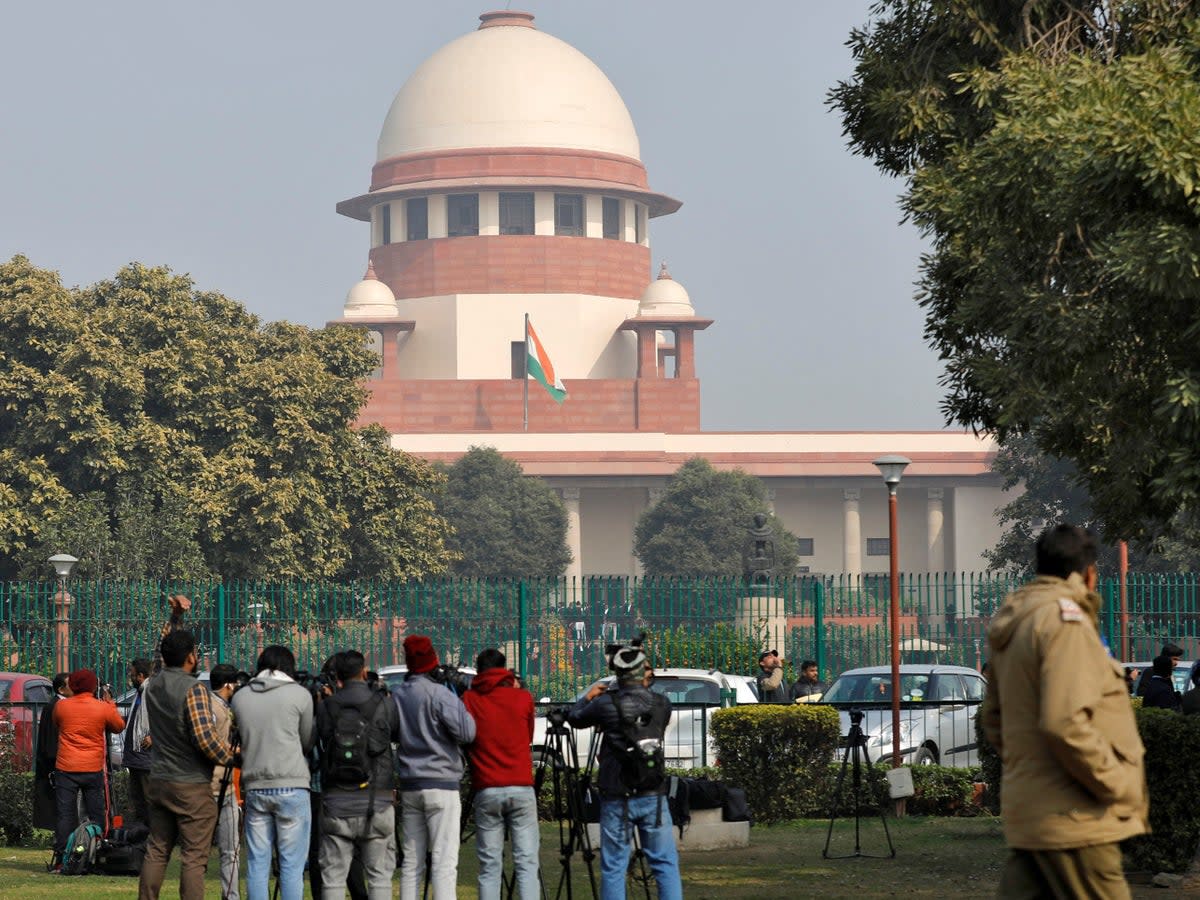India’s top court declares abortion a fundamental right in ruling that could have far-reaching impacts

India’s Supreme Court has issued a landmark ruling declaring abortions are legal for all women in India until 24 weeks of pregnancy, part of a judgement that will have significant implications for women’s rights in the country.
The ruling also indirectly commented on the contentious issue of marital rape, with the judges stating that women who are subjected to gender-based and sexual violence by their partner should also be considered victims in the eyes of the law.
Thursday’s ruling, by a Supreme Court bench consisting of Justices DY Chandrachud, JB Pardiwala and AS Bopanna, ruled that under the Medical Termination of Pregnancy (MTP) Act all women, irrespective of their marital status, should have access to safe and legal abortions.
The bench noted that a 2021 amendment to the Act does not make a distinction between married and unmarried women.
“If Rule 3B(c) is understood as only for married women, it would perpetuate the stereotype that only married women indulge in sexual activities. This is not constitutionally sustainable. The artificial distinction between married and unmarried women cannot be sustained. Women must have autonomy to have free exercise of these rights”, said Justice Chandrachud, the presiding judge of the bench, reading out the judgment.
The court added that the object of the law was to allow a woman to undergo abortion after 20 to 24 weeks and leaving out unmarried women will be a violation of their fundamental rights.
“The rights of reproductive autonomy give an unmarried women similar rights as a married women”, the court said.
In a significant development the court also held that the meaning of rape must be held to include “marital rape” for the purpose of the Act.
The Supreme Court bench led by Justice DY Chandrachud, on Thursday held that the meaning of rape must be held to include "marital rape" for the purpose of the Medical Termination of Pregnancy Act and Rules
Read more:https://t.co/p25Xhz8P5Q#SupremeCourt #maritalrape #PregnancyAct pic.twitter.com/jDH3B76tN6— Live Law (@LiveLawIndia) September 29, 2022
The top court is hearing separate petitions challenging the constitutionality of excluding marital rape from the offence of rape in India.
“Married women may also form the part of the class of survivors of sexual assault or rape,” the court said.
“The ordinary meaning of the word rape is sexual intercourse with a person without consent or against their will. Regardless of whether such forced intercourse occurs in the context of matrimony, a woman may become pregnant as a result of non-consensual sexual intercourse performed upon her by her husband.”
The court’s judgment has been hailed by lawyers and feminists.
Karuna Nundy, advocate, tweeted: “In an era that includes Dobbs vs Jackson, and makes distinctions between the marital status of women who are raped - this excellent judgment on abortion under the MTP Act hits it out of the park.”
In an era that includes Dobbs vs Jackson, and makes distinctions between the marital status of women who are raped - this excellent judgment on abortion under the MTP Act hits it out of the park. https://t.co/eGCXwCwxtf
— Karuna Nundy (@karunanundy) September 29, 2022
Ms Nundy was referring to the US Supreme Court judgment in June that cut access to abortion for women across the country.
Abortion has been legal in India since 1971.
Strict rules were put in to prevent abortion of female fetus.
List included:Rape survivors, minors, females wth mental disabilities, abnormal fetus, married women wth marital status change. Today single women were added to the list. https://t.co/lM6zBGynRG— Yasuni Manikkage (@ManikkageYasuni) September 29, 2022
Analysts have also hailed the judgment for opening up access to abortion to all.
Extremely important decision coming out of the Indian Supreme Court on abortion rights today.https://t.co/NfKjCs0zom
(Note also the deliberate wording to include non-cis women who can get pregnant) https://t.co/hERECo1jY1— Eddie Clark (@Publicwrongs) September 29, 2022
Not to get ahead of ourselves, but this feels like a historic judgment.
— Gautam Bhatia (@gautambhatia88) September 29, 2022
Activist Brinda Adige tweeted: “Landmark. Progressive. Constitutional. Choices-Autonomy-Women’s Bodies-Marital Rape-Abortion. Acknowledging Rights of Women to decide, seek medical services with dignity.”
Landmark. Progressive. Constitutional. Choices-Autonomy-Women’s Bodies-Marital Rape-Abortion. Acknowledging Rights of Women to decide, seek medical services with dignity @NationalFedera4 @JWP_India @Anjmeh @NCWIndia @ndtv https://t.co/7d47OkfISr
— Brinda Adige (@BrindaAdige) September 29, 2022


